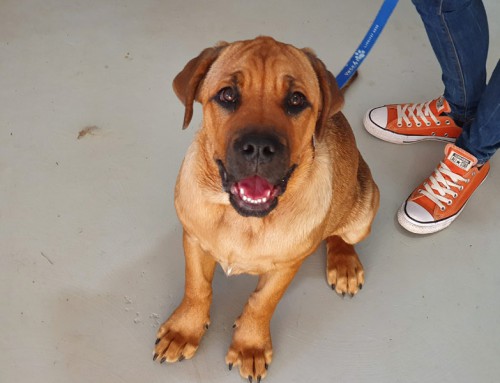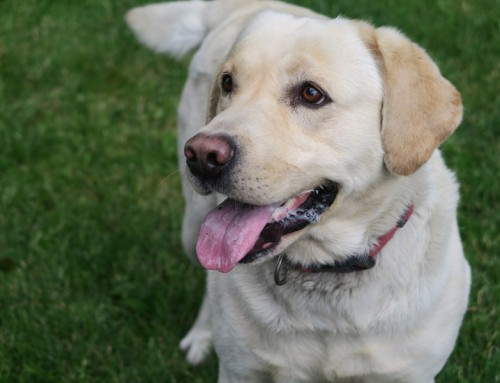FACT: Like children, dogs don’t get born with a “bad behaviour” gene. They learn it. From you or previous owners!
Sadly, many dogs with behavioural problems end up in the pound, as some owners believe that they have a “bad dog” – so they simply transfer the problem to someone else. Of course some dogs are calmer than others, and others are very active – it’s a genetic thing – and if you look at the parents of the dog, you will get a good idea of their temperament. So as a start point, when choosing a dog that will fit with your family and lifestyle, look at the pet’s parents too so you have an idea of what you are buying into.
Remember happy dog means happy owner – here’s 7 top tips to help you get there.
SOCIALISATION
Until about 3 months of age you have a great opportunity to teach your puppy how to form relationships with other animals and people, and to give them confidence when experiencing life around them – such as loud sounds, and even crowds. During this time puppies who live in a family home and have the opportunity to meet lots of people, other animals and have a wide range of experiences are more likely to become well behaved adult dogs. Those that don’t can become fearful, jumpy and unpredictable. Unfortunately the fear can lead to aggression which means bad outcomes for the family and the dog.
TRAINING
Dogs do not naturally know how you want them to behave. They are dogs. Until taught otherwise, they will behave like dogs! (Surprise). Dogs do not know the difference between good and bad behaviour, and most of the time what we consider bad behaviour is the dog acting out some anxiety. They need to learn however, how you want them to behave and this take time, patience and commitment. Training should happen consistently over a sustained period of time – beginning with specific exercises, and then making it part of your daily activities.
If in doubt how to train your dog, get advice from a professional who is up to date with the most enlightened methods, but one thing’s for sure, trying to dominate your dog by inflicting pain and shouting to try and get submission will only make things worse. Find out more about punishment vs correction in dogs .
AVOID NEGATIVE EXPERIENCES
Dogs have long memories – and anyone who has a rescue dog will tell you they have some strange behaviours, which we assume have come from early fearful experiences. They may cower, or even get aggressive in certain circumstances. Bad behaviours can often come from fear and anxiety, so if you can try to avoid exposing your pet to negative experiences (for example fireworks, loud bangs, hitting and shouting), then strange or bad behaviours may be curbed.
DOGS ARE NOT PEOPLE
Whilst dogs are very smart they do not understand human language, and they don’t have a moral code! Treating dogs like humans will never resolve an issue, and may just make you more of a slave to your dog.
BOUNDARIES
If a dog does not have boundaries he will behave without restrictions, then when he can’t have what he wants he may become aggressive (ie when you need to have him examined by your vet). Dogs need to know the rules of the house and they need to be consistently applied, otherwise he will just get confused.
EXERCISE
We can’t emphasise enough how important exercise is for your dog. At least half an hour, twice a day. Dogs don’t “self-exercise” – so just letting them outside to wander around is not the solution either. Dogs need to be stimulated with interesting activities. If a dog is bored and doesn’t get enough exercise you can be sure it will reflected in poor behaviour.
DON’T BE ROBINSON CRUSOE
If you have a dog that’s behaving badly it’s likely that either yourself or a previous owner has created the situation (sorry to say!!). It can be difficult to know what is going one and so we would suggest that you consider the services of a professional behaviourist – they can observe what is going on and have an objective view, and mostly will be able to identify steps you can take to improve your dog’s behaviour.
Good luck on your journey to having a long, loving and happy relationship with your fur friend. But if there are other burning questions you may have, check out the 10 Most Googled Dog Questions 2019!







Leave A Comment